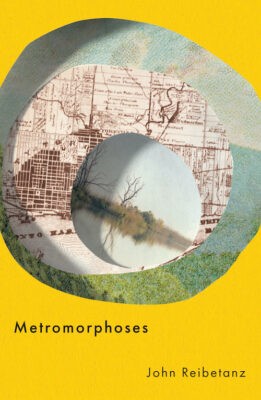If I could buy an atlas of Canadian cities recently mapped by poets, I would expect to find Melanie Power’s St. John’s, rob mclennan’s Ottawa – and now John Reibetanz’s Toronto. One year after New Songs for Orpheus, which celebrated nonhuman nature, Reibetanz reconsiders his surroundings, with the extra challenge of humans:
It’s the peopled streetscapes that pose the mostMetromorphoses
John ReibetanzMcGill-Queen's University Press
$19.95
paper
120pp
9780228020912daunting challenge for you to roll aside
the stones of years […]
In the eight sections of Metromorphoses, Reibetanz accumulates history and folklore to make his portrait of Toronto, “a quilt spread over thoughtless layerings / of time,” performing a time-lapse before our eyes.
Even though this is a personal geography, the poet remains distant behind a third-person voice. Some may read this position as a commitment to objectivity; others may feel as if they’re watching a Discovery Channel documentary in verse. I felt most pulled in when the apparent neutrality cracks, such as in the single poem where the “I” erupts, questioning its own powers:
How can I,
cellphoned and supermarketed,
commune with your hieroglyphics
When the poet’s desire suddenly sidetracks his gorgeous description of a swimming hole, wishing “to be a swimmer rather than viewer,” I can’t help feeling the same. For a collection of encyclopedic ambitions, I wish the poet would follow his own urge more often – and swim.mRb







0 Comments